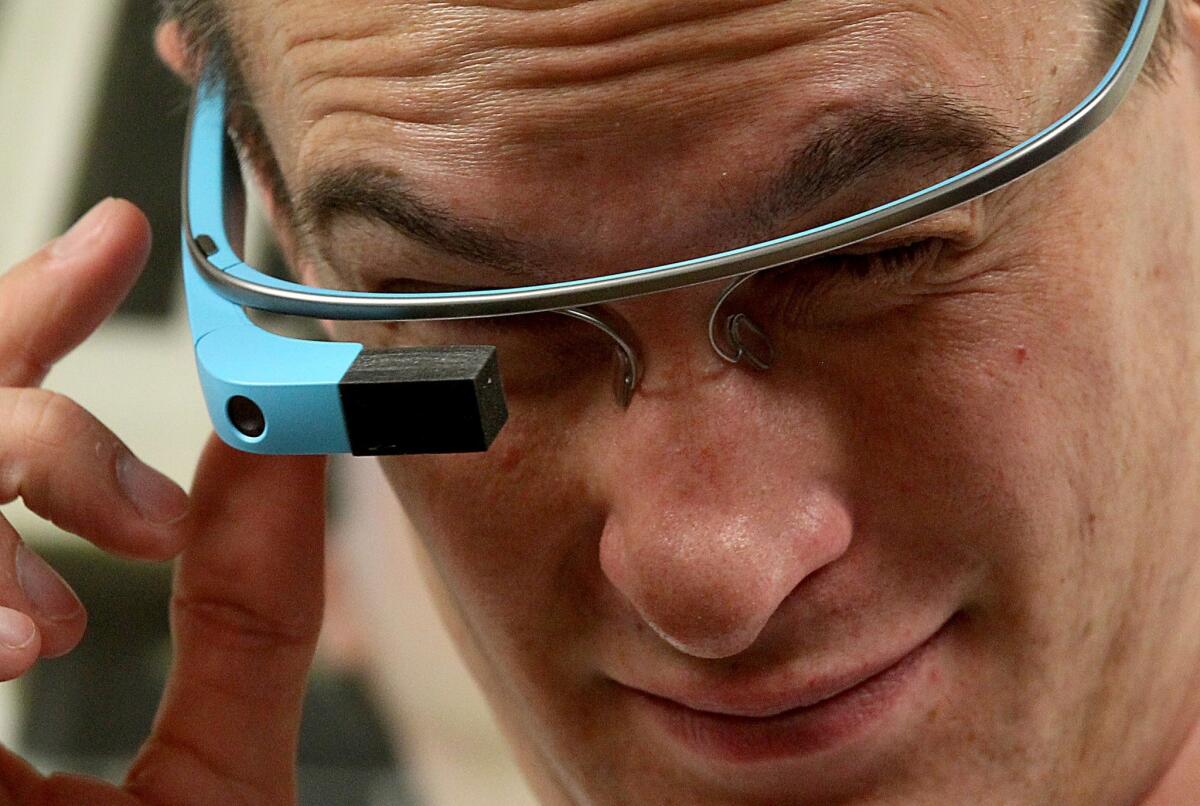Google revenue falls short of estimates as ad prices decline

- Share via
Google Inc. is finding it harder to keep up with a broad shift to advertising on mobile phones, with sales falling short of estimates.
Revenue, excluding sales passed on to partners, was $12.2 billion in the first quarter, falling short of a projection by analysts for $12.3 billion, according to data compiled by Bloomberg.
Google’s audience is steadily migrating to smartphones, where the company gets less money for marketing spots than on desktops and tablets. Facebook Inc. and other rivals are also challenging Google’s dominance in the online market. Even though the world’s biggest search provider is getting more advertisers to buy promotions, with total volume rising 26 percent, the average price for an ad fell 9 percent.
“Mobile is perceived as the single biggest risk over the near-term,” said Scott Kessler, an analyst at S&P Capital IQ Inc., who has the equivalent of a hold rating on the stock “Mobile is definitely helping Google and many others in the number of volume-related metrics, but mobile has also had a notable negative impact on pricing.”
Net income was $3.45 billion, or $5.04 a share during the first three months of 2014, compared with $3.35 billion, or $4.97, a year earlier.
Google’s other revenue, which includes the mobile Play store and hardware such as Chromecast, rose 48 percent from the year ago-period to $1.55 billion.
Reporting for the first time since Google held a de-facto split of the stock earlier this month, the shares fell as much as 6.2 percent in extended trading. The stock advanced 3.8 percent to $556.54 at the close in New York.
Smartphones are dragging down prices for digital ads, with smaller screens limiting the number of promotions that can be displayed, while marketers are becoming more selective in using them. The cost per click for search advertising on smartphones dropped 35 percent during the first quarter in the U.S., according to researcher IgnitionOne. Tablets, which have larger screens and are more like traditional desktops, saw ad prices rise 29 percent.
Still, Google is optimistic about its prospects. Nikesh Arora, chief business officer, said last month that he expects wireless gadgets to eventually outpace the traditional business.
“In the long-term, the mobile monetization is going to be a multiple of desktop monetization,” Arora said at a Morgan Stanley investor conference in San Francisco last month.
Google is investing in new products to drive future growth. The company is licensing hotel-booking software from Room 77 Inc., a startup backed by Expedia Inc. With Room 77, Google can cater to travelers looking to quickly book hotels, the most lucrative part of online travel.
It also is further rolling out its broadband services. In February, Google said it was initiating talks with nine U.S. metropolitan areas about bringing its high-speed broadband Internet service to consumers.
Google is also willing to back away from investments that aren’t working as well. It is selling its Motorola smartphone unit to Lenovo Group Ltd. for $2.91 billion, after buying it for more than $12 billion in 2012. Google, which still retains patents, said Motorola had a loss of $198 million on a discontinued basis.
More to Read
Inside the business of entertainment
The Wide Shot brings you news, analysis and insights on everything from streaming wars to production — and what it all means for the future.
You may occasionally receive promotional content from the Los Angeles Times.








